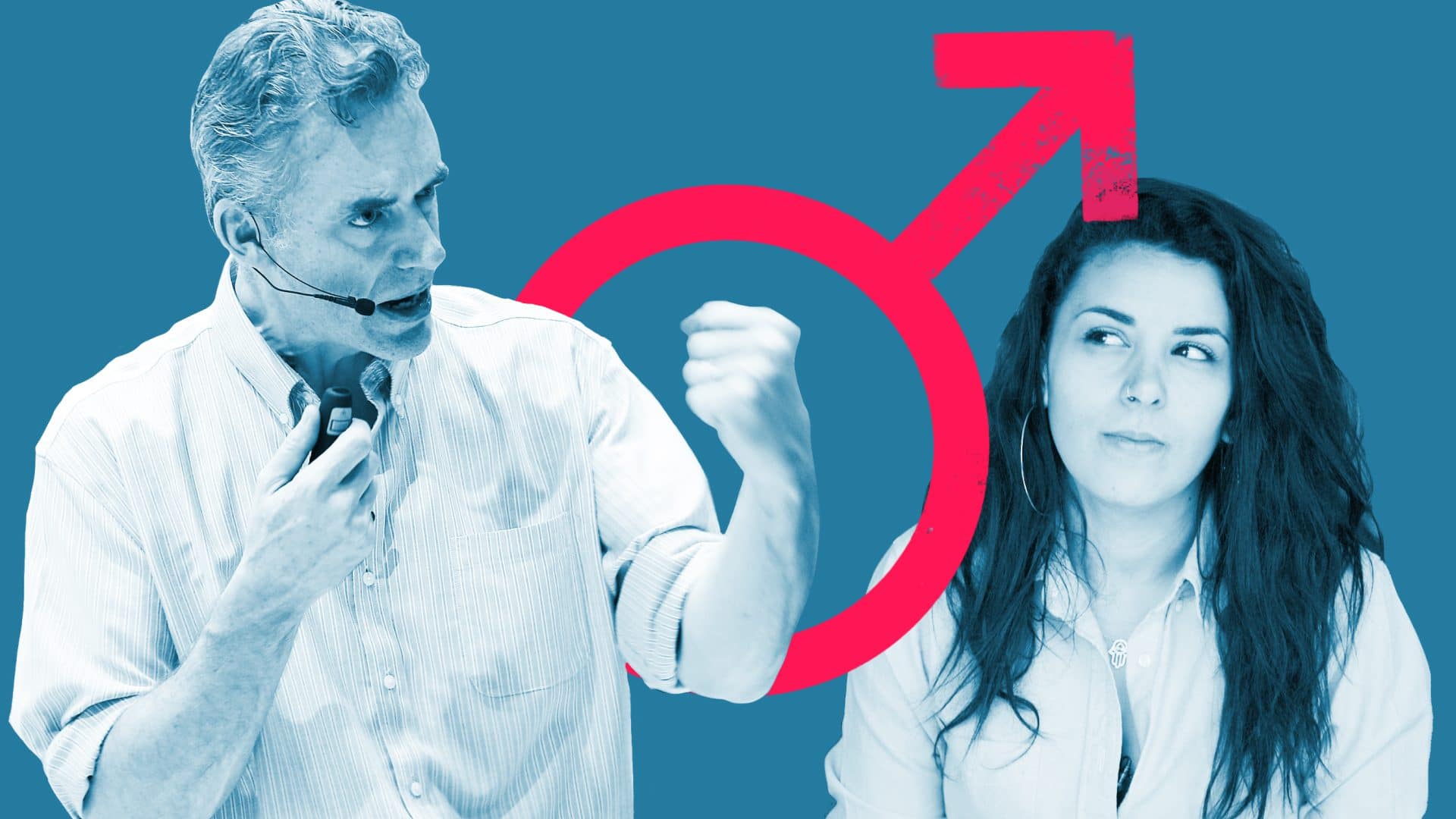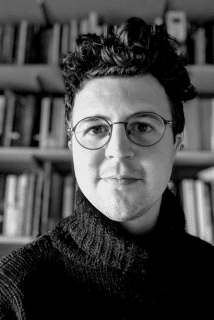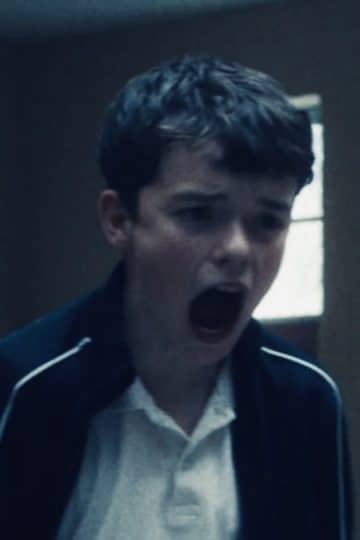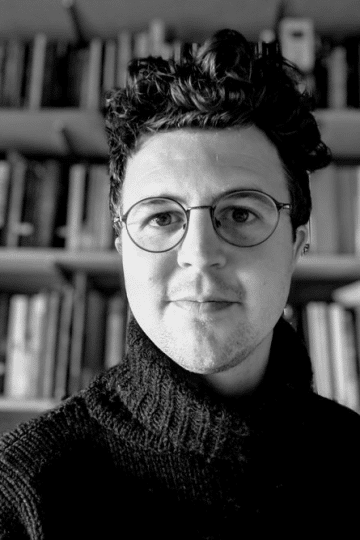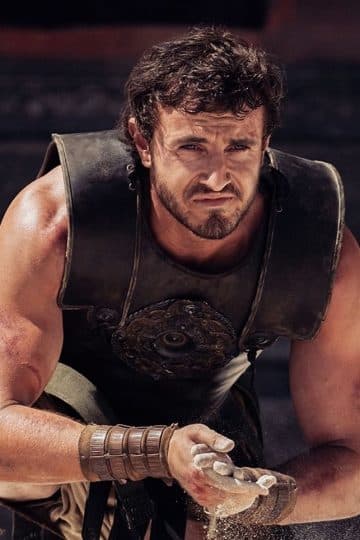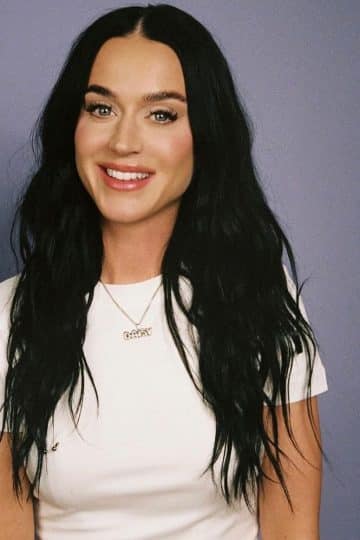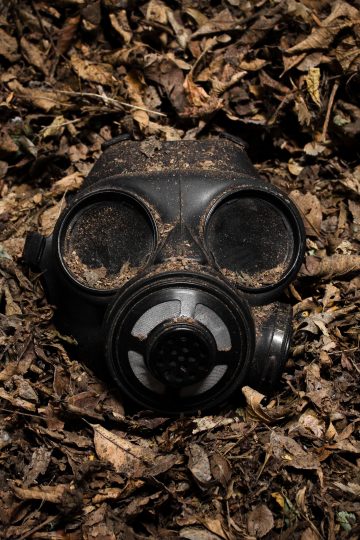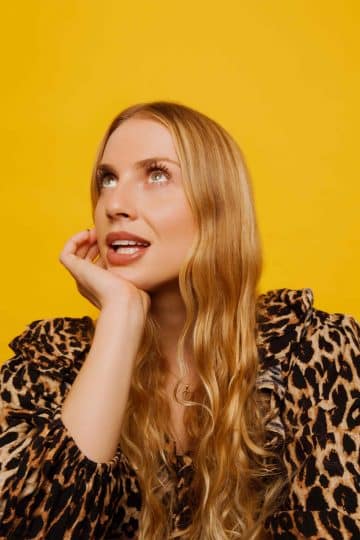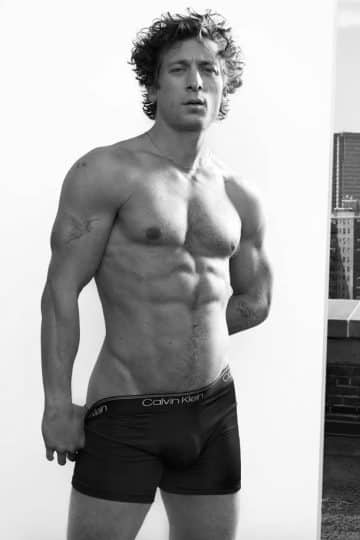Getting deeper into Modern Masculinity
Masculinity
An interview with journalist Iman Amrani about her acclaimed video series 'Modern Masculinity'...
‘Modern Masculinity’ is a Guardian series in which Iman Amrani looks deeper into the issues around masculinity today. It is a quest to uncover the lives realities of debates around men, and features Iman travelling the country to speak to a wide variety of men about their experiences and thoughts. Uniquely revealing, Iman shows herself to be adept at getting men to open up and there is no better guide to what’s going on with modern men than this ongoing series.
We had a chat with Iman to find out more about her series and methodology…
Where did the idea for the series come from?
Naturally I’d lean towards certain stories as a journalist, and was probably pushed towards them a bit. Because I’m Algerian and I could get good access to certain communities in France when the Charlie Hebdo and Bataclan attacks happened. I was able to get different stuff which other journalists couldn’t get which I think was partially because I’m Algerian and partially because I’m a woman. These hard guys would see me and think, ‘why has this little lady rocked up here? ‘It was almost like they wanted to make sure I was alright. I think if I was a guy they might have had more suspicion.
Then I’d be drawn to reports on drill music, knife crime, a lot of youth urban things just because I understood that stuff more than maybe some others. And then I just noticed I was mostly in male dominated spaces even outside my work. The only woman at football matches, gigs, or these neighbourhoods where the girls don’t hang out.
I started drawing lines between things that were happening here and happening in France and I was really interested in that. This was bubbling in the background when #MeToo happened. I saw the #MeToo conversation but I didn’t really know how I was supposed to identify with it. I didn’t feel it was very accessible for me even though I was a woman working in a newspaper. And I felt like a lot of the conversation was performative, about what you’re supposed to say in public. And I had interesting conversations that were much more in the grey areas with friends of mine. I thought this grey area of honest conversation, where you feel safe to you can say what you want, was interesting. I was learning a lot, and felt like I was moving forward and that it was far more progressive than some of the quite scripted ways of expecting guys to speak. That’s why I wanted to do the series – how can we have these conversations and not be polarised?
One thing that really annoys me is when people tell me what they think I want to hear. You have guys sometimes say, ‘I’m a feminist.’ And I say, ‘Great, fantastic…but what do you actually think?’ I’m not interested in them ticking all the boxes in a conversation. I’m interested in who are you, where are you from, what do you think?
So with all the display of the social media age you wanted to look at the messy realities of all this?
Yeah 100% and I felt like because I was a woman I definitely had to build that trust first. I was going into spaces to speak to guys who hated the Guardian. They felt like the Guardian didn’t listen or understand them, because of their class or level of education. If a woman from the Guardian is coming they thought, ‘is she going to try to catch me out? Is she going to try and call me a misogynist? Is this a game?’ So it’s how do you deal with the messy stuff when someone is already on the defensive. You have to develop that trust and let them know you’re not there to catch them out.
What are some of the ways you won that trust?
I don’t really approach stuff in a way broadcast journalists might do. I didn’t put timeframes on things. I could shoot, and then go back in two months. And I’d battle my bosses who would want to know what I was going to be getting out there. I’d say, ‘I can’t know because then I wouldn’t be doing the job of asking the questions and seeing what the people said. I kind of know what I’m going for but I don’t really know what I’m going for.’ That is where you find interesting stuff.
Having that energy when I’m speaking to the men, and when they hear the questions and realise I’m not just going for one thing they think, ‘maybe she is interested.’ Other journalists may have time constraints or pressures to get a soundbite, but I don’t have to do that. I’ll shoot and maybe not use it.
Do you have the freedom to choose where you go with it? And if so how do you find the people?
I don’t think anyone understands what I’m doing, I follow people and conversations. No one else could really tell me you should do this because the series wouldn’t then feel like it does. I’m genuinely so interested in these things, for lots of different reasons. I do think it is authentic. In the video where I went to the Jordan Peterson event, I met Neil, the guy with face tattoos outside, and I just ran after him and said ‘hi do you want to talk to me?’ We got chatting and I asked if I could chat to him again and he said sure.
In the film about the young footballers, there was disclaimer at the start of the video because I do career sessions for the young lads, about careers other than football if it doesn’t work out. Doing that work and meeting those lads made me think I’d like to get them in the series and they’d feel nice that there’s this attention on them. So its very organic. I haven’t gone out and done a proper research bit like a proper BBC producer. There’s no magic to it!
Who has been most surprising person you’ve spoken to?
They all have in their own ways. Although I found Jon Snow interesting. I like the show to focus on normal people and I don’t want to go into a celebrity thing because I think there’s a lot of that. I’m really not interested in celebrities, most of them are really boring and very careful with what they say. But Jon Snow isn’t really a celebrity and he basically talked in one of the interviews about being abused at school.
Here was a really privileged white guy – in terms of how we’re supposed to see the world – who was elite educated, and all these things in contrast to me as a woman who went to a state school and is a minority – and yet he has been through some stuff. We almost gloss over that by putting people into boxes. A lot of the guys I speak to are traditionally masculine, but have had quite traumatic lives. I thought that was the whole point of this. The whole point is that everybody has got stories and experiences, and if you get outside of your own box and own identity and talk to other people, they will remind you of your humanity and who you really are. That in the end makes you realise we’re not actually that different. That sounds wanky but I really mean it.
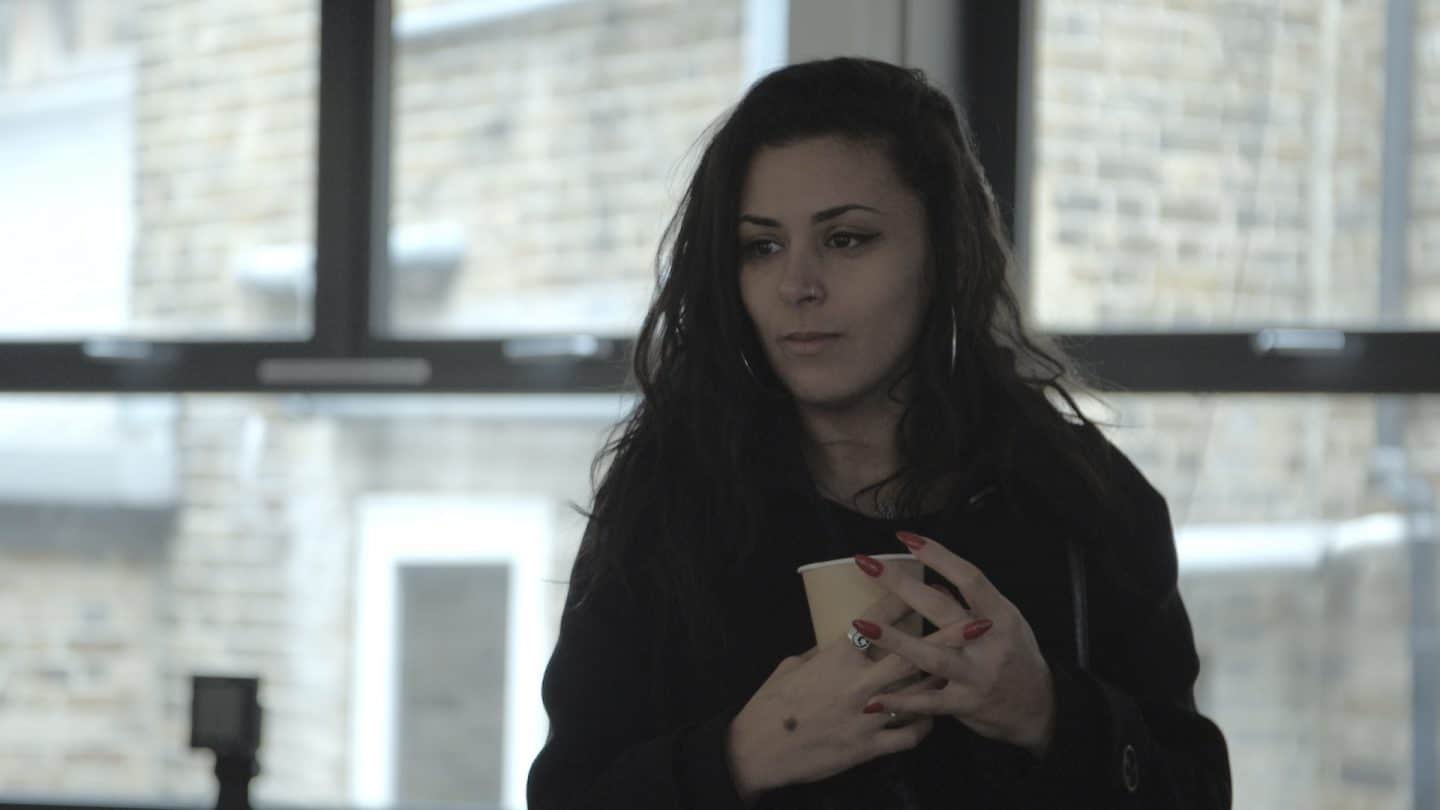
From doing the series what do you think are some of the key challenges facing men today?
I just think there aren’t many good representations of men around. I feel like when we look up at who’s out there we turn to sports stars and I don’t know…Prince William? He’s talking about being a man, but is he a role model? Is he relatable? I don’t know. Boris Johnson? Who wants to be Boris Johnson? I don’t think we want men to be like that either. So who do we look at?
I did an interview with Ed Miliband for his podcast and I asked him which men he looked up to. He said he couldn’t think of anybody. I told him that was awful, so he named his producer but I thought that was a cop out, you can’t name the guy sitting next to you. I said to him, ‘how can you possibly be a man that you like, when you don’t have men around you who you are influenced by?’
To look around and go, ‘where are the good examples, anywhere?’ I think that’s one of the hardest things.
What have you learnt about the way men deal with mental health issues?
At the best of times the stereotype is that men don’t talk about stuff, but now it’s tougher than ever. There’s more episodes out in January where I’ve been to places like Bradford, Liverpool, Wales, Leeds, and now there’s nowhere to talk, there’s nowhere to go – the gyms and barber shops are spaces where guys would go to deal with these things. It’s imperfect, it’s not talking directly to the issue but it works. Without that stuff being there I think its really scary. Because I do think guys know how to look after each other in a different way to women. They can gauge when someone is alright or not alright. And they might not get to the nitty gritty of talking about it but there’s an energy you feel off people – I think the fact that this is not happening in those spaces is really worrying. The men I’m talking to are dealing with things through alcohol consumption, self-medicating with weed or other drugs.
I did a tweet asking how people were getting on and my inbox was just inundated with guys who felt a connection because they’ve seen the series. They feel like they can talk to me. It’s quite concerning. I think women are a bit better about making those links, but also having to make those links, just because of what their roles are in families and in societies. In the series I hope we can put a bit of light on that.
Are you emerging from all these conversations with a positive feeling about the direction men are going in?
I don’t think it’s clear where the next step is of having these conversations. What happens next? What good are these conversations going to be if all these people are going to be unemployed? Without the structures in place and the resources, talking is cheap. I’m a naturally optimistic person but I’m not optimistic about the near future. It’s going to be uncomfortable for a while.
Going back to the stereotypes – have you find that if you give men the opportunity to talk, it all comes out…?
It depends what they talk about, where they are and who they’re around. I found it interesting that speaking to men by themselves was different than speaking to them in front of other men. Jon Snow said he feels comfortable around women because when he’s around men there’s always a need to compete a bit. He said there’s always a bit of bravado and I see that 100%. Speaking to two guys increases that level of bravado, but when I’m just with one guy and I’m asking that person questions and not pushing too hard, I think it gets to a place where we’re not in competition at all. And maybe I have experiences that link to that person’s experiences and am quite happy to share that and be open. I understand a lot of male behaviours now in a clearer way.
Can you give us a preview of what you’ve got coming up?
Yeah I’ve done an episode looking at fatherhood. How that experience has been made more difficult with coronavirus. And I’ve looked at living with longer term mental health issues and dealing with the system.
One of the things I wanted to deal with this series is I’ve noticed a lot of PR campaigns about mental health which are very well intentioned and are all about talking about your feelings, but I’m just aware that mental health goes a lot further than that in many cases. Especially now. We need to get a lot further in that conversation.
Trending

Join The Book of Man
Sign up to our daily newsletters to join the frontline of the revolution in masculinity.




